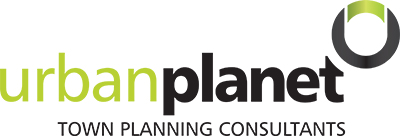This guide will help you navigate the various resources available for town planning, development, and related inquiries in the Fraser Coast region. Whether you’re a developer, homeowner, or community member, understanding and utilizing these tools can streamline your planning processes and ensure compliance with local regulations.
Please always visit the Fraser Coast Regional Council website for the most up to date information. Or talk to us at Urban Planet, we are always up to date.

1. Introduction to Fraser Coast Planning
The Fraser Coast Regional Council’s Planning Information and Tools page provides access to crucial information for planning and development activities within the region. This includes guidelines, regulations, application forms, and interactive tools to assist with various planning needs.
For detailed information about the planning framework in the Fraser Coast, visit the Planning Framework section.
2. Development Applications
When planning a new development or making changes to an existing property, you’ll need to submit a development application. This process ensures that your project complies with local planning schemes and regulations. The Fraser Coast Council provides comprehensive resources to guide you through this process.
- Development Application Forms: Access the necessary forms and documentation required for submitting a development application. Find these under Development Application Forms.
- Application Fees: Understand the fees associated with your development application. Detailed information is available in the Application Fees section.
- Development Assessment: Learn about the development assessment process, including what to expect and how to prepare. Visit the Development Assessment page for more details.
3. Preliminary Approvals
Before submitting a full development application, obtaining a preliminary approval can provide valuable insights and guidance. This approval helps assess the compatibility of your proposal with local planning regulations.
- Preliminary Approval Process: Find information on how to apply for preliminary approvals, including required documents and procedures, under Preliminary Approvals.
4. Material Change of Use
If you plan to change the use of a property significantly, such as converting residential space to commercial use, a Material Change of Use (MCU) is required.
- MCU Application Information: Understand the requirements and process for applying for a Material Change of Use in the Material Change of Use section.
5. Lot Reconfiguration (Subdivision)
For dividing a parcel of land into smaller lots, the process of lot reconfiguration or subdivision is necessary.
- Subdivision Guidelines: Get details on the subdivision process, including planning requirements and application procedures, in the Subdivision Guidelines section.
6. Site Analysis and Concepts
Before starting a development, a thorough site analysis and conceptual planning are essential. This helps in understanding the site’s potential and constraints.
- Site Analysis Tools: Access tools and guidelines for conducting site analyses under Site Analysis and Concepts.
7. Project Management
Effective project management ensures that development projects are completed on time and within budget, adhering to all regulatory requirements.
- Project Management Resources: Find resources and best practices for managing development projects in the Project Management section.
8. Planning Appeals and Negotiation
If your development application is denied or requires modifications, planning appeals and negotiations can be necessary.
- Appeals and Negotiation Process: Learn about the process for appealing planning decisions and negotiating changes under Planning Appeals and Negotiation.
9. Urban Design and Master Planning
Urban design and master planning focus on creating long-term strategies for the development of larger areas.
- Urban Design Guidelines: Access guidelines and examples of urban design and master planning under Urban Design and Master Planning.
10. Public Notification
Public notification ensures that the community is aware of and can provide feedback on development proposals.
- Public Notification Procedures: Find out how public notification is managed and how to participate in the process in the Public Notification section.
11. Statutory and Strategic Planning
Statutory planning involves the legal aspects of planning, while strategic planning focuses on long-term goals.
- Statutory and Strategic Planning Information: Access resources on statutory and strategic planning frameworks in the Statutory and Strategic Planning section.
12. Community Consultation
Community consultation is crucial for ensuring that planning processes reflect the needs and concerns of local residents.
- Community Consultation Processes: Learn about how community consultation is conducted and how you can get involved in the Community Consultation section.
13. Local Government Development Assessment
This involves the local council evaluating development applications to ensure they meet all regulations and policies.
- Development Assessment Procedures: Understand the development assessment procedures and criteria in the Local Government Development Assessment section.
14. Planning Scheme Representations
Representations provide feedback on proposed changes to the planning scheme.
- Making Planning Scheme Representations: Get details on how to make representations regarding the planning scheme in the Planning Scheme Representations section.
15. Opportunities and Constraints Analysis
Analyzing opportunities and constraints helps in understanding the potential and limitations of a development site.
- Opportunities and Constraints Analysis Tools: Find resources for conducting opportunities and constraints analysis under Opportunities and Constraints Analysis.
16. State and Federal Agency Coordination
Coordinating with state and federal agencies ensures compliance with broader regulations.
- State and Federal Agency Information: Learn about the requirements and processes for coordinating with state and federal agencies in the State and Federal Agency Coordination section.
17. Landscape Concepts
Landscape concepts focus on designing and integrating outdoor spaces effectively.
- Landscape Planning Guidelines: Access guidelines and examples for developing landscape concepts in the Landscape Concepts section.
Navigating the town planning landscape in Fraser Coast involves understanding a range of processes and tools. From submitting development applications to engaging in community consultations, each aspect plays a crucial role in shaping the region’s growth and development. The Fraser Coast Regional Council’s Planning Information and Tools page offers a wealth of resources to support these activities, ensuring that your planning and development endeavors are well-informed and compliant with local regulations. By utilizing these resources effectively, you can contribute to the sustainable and harmonious growth of the Fraser Coast region.
People Also Ask
What is the town planning process?
The town planning process involves a series of steps designed to guide the development and use of land in a sustainable and organized manner. It begins with site analysis to understand the characteristics and constraints of the land. Developers then submit development applications, detailing their proposals and how they align with local regulations. The local government conducts development assessments to evaluate these proposals against planning schemes and community needs. If approved, developers may need preliminary approvals for specific aspects, such as changes in land use. Throughout the process, community consultations ensure public input and feedback. Urban design and master planning shape the long-term vision for land use and infrastructure. Finally, planning appeals and negotiations address any disputes or modifications required. This structured approach ensures that development is well-planned, legally compliant, and beneficial to the community.
